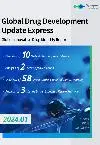Biotech bankruptcies hit 10-year peak in 2023
12 Feb 2024
Phase 2ImmunotherapyPhase 3AcquisitionCell Therapy

Preview
Source: FierceBiotech
In terms of biotech bankruptcies, the new year is starting off bleak. In the first few days of 2024 alone, Humanigen and Athersys both filed for bankruptcy.
More biotech companies filed for bankruptcy in 2023 than any year since 2010, underscoring a brutal year defined by layoffs, company closures and pipeline reprioritizations, according to data from S&P Global Market Intelligence.
2023 eclipsed all other years by far, with 18 companies filing for protection compared to eight in 2022, which had previously held the record as the highest bankruptcy year.
https://public.flourish.studio/visualisation/16736139/
The year kicked off with Sorrento Therapeutics filing Chapter 11 amid a legal battle with billionaire Patrick Soon-Shiong and his immunotherapy biotech NantCell. The company had $235 million in debt and had run out of options. Sorrento had been developing a generic rival to Bristol Myers Squibb’s Abraxane, which was the subject of the dispute with Soon-Shiong.
As of November 2023, Sorrento had laid off its chief financial officer in the final step in the closure process, according to a Securities and Exchange Commission document.
For Infinity Pharmaceuticals, an unsuccessful merger with MEI Pharma was the straw that broke the camel’s back. The cancer-focused biotech filed for Chapter 11 bankruptcy on Sept. 29, a move that followed a 75% workforce reduction in July.
Infinity had looked for a strategic transaction to keep running trials for eganelisib, a midstage asset being assessed in multiple indications, including urothelial cancer and solid tumors. MEI Pharma appeared to offer the saving Infinity sought until MEI shareholders’ sunk the deal, with 51% of voters opposed to the transaction.
OncoSec Medical, which filed in June, was forced to wrap up after a pivotal trial of an interleukin 12-encoding plasmid in combination with Merck & Co.’s Keytruda failed to meet the bar for success in objective response rate. The phase 2b trial was testing the med, called TAVO-EP, in patients with unresectable or metastatic melanoma who had progressed after treatment with an anti-PD-1 checkpoint inhibitor.
The company filed for bankruptcy after defaulting on a $2 million loan.
https://public.flourish.studio/visualisation/16735813/
Back to court
The move comes as no surprise for Humanigen, a monoclonal-antibody-focused biotech that had been considering bankruptcy since last summer after talks of a potential reverse merger fell through. The company was on its last leg, with only $3.1 million in the bank last March after its anti-human GM-CSF mAbGM-CSF mAb failed to improve outcomes in hospitalized COVID-19 patients in 2022.
This is not the first time Humanigen has gone to the bankruptcy courts. The company, then named KaloBios Pharmaceuticals, also filed in 2015 but managed to reorganize and survive the struggle, according to the S&P data.
The company emerged from bankruptcy the following year, thanks to a $14 million equity financing that helped recapitalize the business. Humanigen also picked up rights to a rare disease treatment called benznidazole. The biotech’s name changed to Humanigen in August 2017.
But financial troubles again hit the newly named company, forcing the offloading of benznidazole in December 2017 as part of an agreement to exchange loan obligations for equity. Humanigen shifted from rare diseases to immunotherapy and oncology and moved lenzilumab to the center of its pipeline.
Lenzilumab never quite found its footing in the clinic, with Humanigen testing it in cancer, COVID-19, graft-versus-host disease and others. A second therapy, the EphA-3-targeted monoclonal antibody ifabotuzumab, was also in development as recently as August 2023.
That August pipeline update was the last from Humanigen, and, in January, bankruptcy papers (PDF) were filed. The company now plans to sell off its assets in a bidding process. But before filing the bankruptcy work, Humanigen sold off its biopharma business to Taran Therapeutics, meaning the therapies will go on via a stalking horse bid. Taran picked up a portfolio of monoclonal antibodies, including lenzilumab, ifabotuzumab and HGEN005, for $20 million.
The writing was also on the wall for Athersys after the stem cell therapy company suffered a series of clinical setbacks. Ultimately, disappointing phase 3 data for an ischemic stroke cell therapy triggered the biotech to sell off all assets and file for bankruptcy Jan. 5.
The healthcare sector as a whole has kicked off the year in third place among bankruptcy filings by sector, according to S&P, behind industrials and consumer discretionary. While the pace of bankruptcies across all sectors declined to start the year, S&P noted that companies are still facing relatively high interest rates and a challenging labor market.
Editor's note: Chart data sourced from S&P Global Market Intelligence. Graphics by Gabrielle Masson.
For more details,please visit the original website
The content of the article does not represent any opinions of Synapse and its affiliated companies. If there is any copyright infringement or error, please contact us, and we will deal with it within 24 hours.
Organizations
Indications
Hot reports
Get started for free today!
Accelerate Strategic R&D decision making with Synapse, PatSnap’s AI-powered Connected Innovation Intelligence Platform Built for Life Sciences Professionals.
Start your data trial now!
Synapse data is also accessible to external entities via APIs or data packages. Leverages most recent intelligence information, enabling fullest potential.





